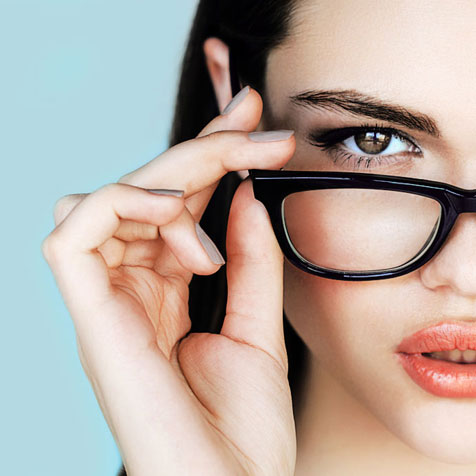Dry Eye
Dry eye is quite perhaps one of the most under-diagnosed diseases in our country. At Eye Care Center, our passion is identifying patients with dry eye, educating them on the disease process, and formulating a proper eyecare regimen to eliminate their signs and symptoms.
Symptoms of Dry Eye:
- Blurry vision
- Fluctuations in vision
- Burning & stinging
- Gritty eyes
- Foreign body sensation
- Watering
- Itchy eyes
- Light sensitivity
- Painful eyes
If you have any of these symptoms, timely intervention and treatment is critical. We offer dry eye treatment in Bryan / College Station at Eye Care Center. As your optometrist, we are experts in examining your eyes for dry eye syndrome and treating them in the best way possible. We offer treatments for dry eyes ranging from prescription eye drops to punctal plugs and everything in between. Have our eye doctor examine your eyes to determine the best dry eye treatment for them.
Dry eyes or dry eye syndrome (DES) is an ongoing condition that treatments may be unable to cure. But the symptoms of dry eye—including dryness, scratchiness and burning—can usually be successfully managed. Artificial tears, which are lubrication eye drops may alleviate the dry, scratching feeling and foreign body sensation of dry eye. We are also fortunate to now have prescription eye drops. Because there are three layers of the tear film, it is important to understand which layer of tear film is the cause of dry eye. Each layer can require a different treatment approach. Some work on each layer of the tear film, some work on increasing production and some work on improving the quality of the tears.
Check with Dr. Belinda Dobson before buying any over-the-counter eye drops. Many over the counter eye drops have harsh preservatives or chemicals that can be toxic to the cornea, and can actually worsen your dry eye.
To reduce the effects of sun, wind and dust on dry eyes, wear sunglasses when outdoors. Wraparound styles offer the best protection.
Indoors, an air cleaner can filter out dust and other particles from the air, while a humidifier adds moisture to air that's too dry because of air conditioning or heating.
Bryan / College Station Dry Eye Treatment for Severe Cases
For more significant cases of dry eye, Dr. Dobson may recommend punctal plugs. These tiny devices are inserted in ducts in your lids to slow the drainage of tears away from your eyes, thereby keeping your eyes more moist. In addition, many times our doctors recommend Omega 3 Fatty Acids which have been proven to help with Dry Eye Syndrome. There are also new break through medications that are revolutionizing dry eye. Schedule your appointment today with Dr. Dobson to see if you are a candidate for this dry eye therapy.
If medications are the cause of dry eyes, discontinuing the drug generally resolves the problem. But in this case, the benefits of the drug must be weighed against the side effect of dry eyes. Sometimes switching to a different type of medication alleviates the dry eye symptoms while keeping the needed treatment. In any case, never switch or discontinue your medications without consulting with your doctor first.
Treating any underlying eyelid disease, such as blepharitis, helps as well. This may call for antibiotic or steroid drops, plus frequent eyelid scrubs with an antibacterial shampoo. If you are considering LASIK, be aware that dry eyes may disqualify you for the surgery, at least until your dry eye condition is successfully treated. Dry eyes increase your risk for poor healing after LASIK, so most surgeons will want to treat the dry eyes first, to ensure a good LASIK outcome. This goes for other types of vision correction surgery, as well.
Ocular Allergies
While the Brazos Valley & Bryan/College Station are definitely lovely places to live, the allergies that come along with them leave some feeling aggravated and uncomfortable almost year round. If you suffer from allergies and its’ effects on the eyes, let Dr. Belinda Dobson help you today.
Eye allergy occurs when something you are allergic to irritates the conjunctiva, which is a delicate membrane covering the eye and the inside of the eyelid. Like all allergies, allergic conjunctivitis starts when the immune system identifies an otherwise harmless substance as an allergen. Symptoms can onset within minutes to hours in more acute cases, yet linger for months in more chronic cases.
Symptoms of Ocular Allergies:
- Red eyes
- Watering eyes
- Itching or burning
- Sensitivity to Light
- Gritty eyes
- Puffy or swollen eyes or lids
The most common causes of allergic conjunctivitis are seasonal allergens such as pollen and mold spores. People with seasonal allergic rhinitis (hay fever) normally notice their symptoms worsen when they go outdoors on days with high pollen counts.
Indoor allergens such as dust mites and pet dander can also cause eye allergies year-round. If you suffer from this type of allergy, you may notice your symptoms worsen during certain activities such as cleaning your house or grooming a pet.
Eye allergy symptoms can be very annoying. Yet they pose little threat to eyesight other than temporary blurriness. Unlike conditions such as pink eye, allergic conjunctivitis is not contagious. The first step toward relief is proper diagnosis. Dr. Belinda Dobson will use her high power microscopes to examine the anterior surface of the eye and inspect for signs of allergic conjunctivitis.
After proper eye allergy diagnosis, she will provide a regimen to eliminate your symptoms quickly, and prevent future episodes of allergic conjunctivitis.
If you suspect you suffer from ocular allergies, wait no longer. Schedule your appointment with Eye Care Center and let our eyecare professionals help you find the road to relief quickly.















